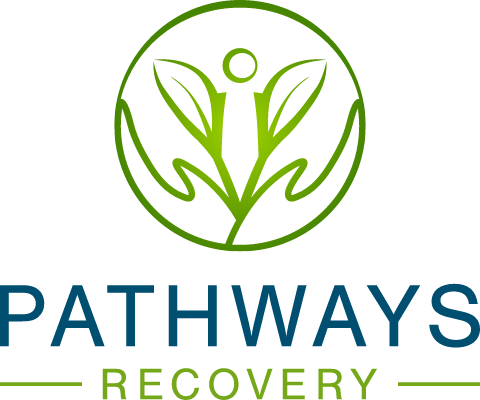Conquer Your Adderall Addiction Today
There is no better time than now to seek treatment for an Adderall addiction.
Over the years, Adderall misuse and ultimately addiction have become a topic of concern. Known as the “study drug” due to its consumption among students, Adderall is a central nervous system stimulant. It is a combination of dextroamphetamine and amphetamine.
Medical professionals prescribe Adderall to treat attention-deficit/hyperactivity disorder (ADHD) and narcolepsy (a sleep disorder that causes sudden “sleep attacks”). Currently, Adderall is not approved for any other medical uses. Consuming Adderall without a prescription, for purposes other than treating ADHD or narcolepsy, or at doses higher than prescribed are all considered misuse and can be dangerous.
Unfortunately, Adderall is often misused by people in school, in the workplace, and athletes. Reasons for misuse vary, but they include improving focus, feeling the euphoric (pleasurable) effects, staying awake, or losing weight.
Nonetheless, Adderall misuse can lead to addiction. If Adderall has taken control of your life, we can help.
Seeking Treatment At Pathways Recovery
Pathways Recovery provides three levels of addiction treatment solutions for those battling an addiction to a substance, including a detox center, residential treatment, and intensive outpatient treatment.
At Pathways Recovery, the Adderall addiction program is designed to give clients a sense of security, comfort, support, and encouragement as they walk the road to recovery.
Pathways Recovery’s detox center provides medically assisted detoxification for those who need it. Clients will be monitored with the highest form of care possible as they go through this process to ensure safety.
After the detox process, clients will enter the residential program. Residential treatment is tailored to the unique needs of the client and includes therapy sessions designed to get to the root cause of addiction and psychiatry to focus on any mental health disorders that may have been undiagnosed before entering treatment.
The third and final part of the process is intensive outpatient treatment. Outpatient treatment is recommended for clients transitioning from residential treatment, or those who need a more flexible schedule and can’t do residential treatment. It’s also the perfect opportunity to remain connected to the recovery process while also living a relatively normal life.
A List Of What Pathways Recovery Offers In Residential Treatment
Pathways Recovery is dedicated to ensuring you have the best experience possible during your residential stay.
The goal is for you to understand your addiction, how to manage it, and how to live a life in recovery. Pathways Recovery offers the following during residential treatment:
- Chef-prepared meals
- Medical-grade supplements to help with the healing process
- Personal fitness trainer
- Yoga
- Meditation classes
- Family workshop
- Daily individual and group addiction treatment sessions
- Small staff-to-patient ratio, providing the best situation for individualized care
- Trauma therapy (for those recovering from awful experiences)
- Medication-assisted treatment customized to each individual’s unique needs and goals

Pathways Recovery believes in the power of personal fitness to help rebuild the body and mind. Yoga and meditation classes are offered to teach clients how to cope with life without substances.
Group and individual counseling will help clients learn how to manage relationships with friends and family. Through therapy, Pathways Recovery will also help clients discover any underlying mental health conditions or trauma. This, in turn, can bring the root causes of addiction to the surface.
Taking A Look At Intensive Outpatient Treatment
After the detox process and your residential stay, Pathways Recovery’s intensive outpatient treatment program will assist those wanting to still get treatment but in a more flexible way.
Pathways Recovery offers the following resources and activities through outpatient treatment:
- Group therapy
- Individual counseling
- Identifying high-risk situations
- Codependency education
- Co-occurring disorder treatment (for mental health and substance use disorders)
- Relapse prevention
- Developing a sober support system
- Mood management
- Anger management
- Family education
- Trauma and childhood post-traumatic stress disorder (PTSD) treatment
- Communication skills
A Pathways Recovery professional will be able to help determine what is best for you.
If you’re looking to maintain your family and work schedule while also receiving quality care, outpatient treatment may be perfect for you. However, it is typically recommended you seek residential treatment first if you’re dealing with a severe addiction.

Family Education Is Important
Your loved ones hate to see you struggling, but their support is so important to the healing process.
Pathways Recovery understands no one is born knowing exactly how to support someone battling addiction. It’s normal for them to have the “I’m going to fix this” mindset, but sometimes, that can do more harm than good.
Family therapy is designed to work on the relationships between all family members. By educating family members, issues can be addressed. Sometimes, family can be secretive about confronting your addiction, which in turn can lead to toxic responses or actions.
All in all, the main goal is to get everyone involved to a point where they can address any issue in a healthy way. If your family has questions as to how they can help you, this program can be extremely beneficial.
Addiction does not have to negatively affect your relationships. In fact, they need you just as much as you need them.
Is Now The Time To Seek Treatment?
Addiction can consume every aspect of your life, but you have the power and strength to overcome it. One of the first steps toward recovery is reaching out for help. It’s important to remember everyone needs a helping hand at some point. There is nothing to be embarrassed or ashamed about.
If you’re showing any of the following symptoms, you could be battling an Adderall addiction:
- Weight loss
- Tremors
- Problems with family and friends due to consuming Adderall
- Financial problems due to Adderall misuse
- Increased tolerance to Adderall leading to more frequent and higher doses
- Consuming Adderall in dangerous situations
- Choosing Adderall over activities you once enjoyed
- Continuing to consume Adderall despite negative health effects
- Mood swings
- Personality changes
- Frequently getting into trouble due to Adderall
- Anxiety
- Dry mouth and nose
- Depression
- Changes in sleep patterns
By seeking professional treatment, you can overcome your addiction in a healthy environment, and you’ll learn the tools needed to live a sober life. Again, do not hesitate to seek help.
What Does Adderall Do To The Body?
According to the National Institutes of Health (NIH), prescription stimulants, such as Adderall, “increase the activity of the brain chemicals dopamine and norepinephrine. Dopamine is involved in the reinforcement of rewarding behaviors. Norepinephrine affects blood vessels, blood pressure and heart rate, blood sugar, and breathing.”
The NIH says Adderall may also cause the following:
- Increased blood pressure
- Decreased blood flow
- Increased breathing patterns
- Increased blood sugar
- Increased heart rate
When misused at higher doses, Adderall can cause much more serious effects, such as seizures, high body temperature, irregular heartbeat, heart failure, paranoia (fear something bad might happen), anger, and overdose.
What Does An Adderall Overdose Look Like?
Yes, you can overdose on Adderall, and yes, it can be extremely dangerous.
Common symptoms of an Adderall overdose include:
- Panic
- Tremors
- Rapid breathing
- Confusion
- Aggression
- Hallucinations (seeing or hearing things that aren’t there)
- Fever
- Muscle pains
- Nausea
- Vomiting
- Diarrhea
- Irregular heartbeat
- Heart attack
- Seizure
- Problems with blood pressure
- Coma
- Convulsions
In some cases, an Adderall overdose can be fatal.
If you suspect you or someone you know has overdosed on Adderall, call 911 immediately.
In order to address the issue, emergency personnel may try to restore blood flow to the heart in the event of a heart attack. If a seizure occurs, medication may be used to stop it.
Common And Serious Adderall Side Effects
Even those with an Adderall prescription may experience side effects. As with most drugs, some side effects are less severe than others.
If you’re having the following side effects and they do not go away, consult with your doctor as soon as possible:
- Headache
- Nervousness
- Dry mouth
- Constipation
- Nausea
- Diarrhea
- Weight loss
- Changes in sex drive
- Painful menstrual cramps
More serious side effects can include:
- Dizziness
- Speech problems
- Seizures
- Depression
- Teeth grinding
- Weakness/numbness in arms or legs
- Hallucinations
- Fever
- Sweating
- Muscle stiffness
- Vomiting
- Vision problems
- Paleness
- Blueness in fingers or toes
- Trouble breathing or swallowing
- Itchiness
- Blisters
- Swelling
If you’re experiencing any of these more serious side effects, call a medical professional immediately.
According to the U.S. National Library of Medicine, “Dextroamphetamine and amphetamine (Adderall) may cause sudden death in children and teenagers, especially children or teenagers with heart defects or serious heart problems.
This medication also may cause sudden death, heart attack, or stroke in adults, especially adults with heart defects or serious heart problems. Call your doctor right away if you or your child has any signs of heart problems while taking this medication including chest pain, shortness of breath, or fainting. Talk to your doctor about the risks of taking this medication.”
The list of side effects should give people that much more reason to only consume the drug with a prescription and at the prescribed dose. You could have underlying health problems that negatively interact with Adderall.
Before being prescribed Adderall, you should tell your doctor if you’re allergic to any other medications, what other medications you‘re consuming, what medications you’ve stopped consuming in the past 14 days, any medical problems you have, and if you’re pregnant or planning to become pregnant.

A Look At Why Adderall Is Misused
According to a 2015 report from the Substance Abuse and Mental Health Services Administration (SAMHSA), “Approximately 15.4 million adults were past-year users of prescription stimulants in 2015, representing 6.3% of adults. In 2015, about 4.8 million adults misused prescription stimulants at least once in the past year, representing 2% percent of all adults or 30.9% of adults who used stimulants in the past year.”
Those who participated in the survey gave reasons as to why they misused the stimulant Adderall, including;
- To lose weight
- To help with concentration
- To help study
- To stay awake or alert
- To experiment with the drug
- To get high
- To increase or decrease the effects of other drugs
- Addiction
Furthermore, 26.2% misused Adderall to concentrate, 24.8% misused Adderall to stay awake or alert, and 22.4% misused the drug to study.
As listed above, Adderall is sometimes misused by those looking to lose weight since the drug can act as an appetite suppressor. Essentially, since those consuming the drug for that purpose do not eat, they’re starving themselves. It’s widely known that starving yourself is not a healthy way to lose weight as it can lead to health problems such as malnourishment.
It cannot be stressed enough — Adderall should not be consumed unless prescribed by a doctor. The continued misuse of Adderall is a slippery slope you don’t want to find yourself on.
Call Pathways Recovery Today
The first step to conquering your Adderall addiction is just a phone call away.
At Pathways Recovery, our clients’ success is our highest priority. Sometimes, it’s easy to forget that someone somewhere is always willing to help. This is your reminder. Pathways Recovery is here for you.
Together, we can help you return to a life of normalcy, free from your addiction.
To learn more, call (916) 735-8377 today.
Frequently Asked Questions
Is Adderall addictive if you have ADHD?
Adderall can be addictive if you have ADHD and you’re misusing it. You should always have a prescription from a medical professional. Consuming Adderall without a prescription, for purposes other than treating ADHD or narcolepsy, or at doses higher than prescribed are all considered misuse and can be dangerous. Too much Adderall can cause a wide variety of health complications and in extreme cases can be fatal.
Can Adderall be therapeutic?
Adderall can be an effective drug used to treat ADHD and narcolepsy. It is not approved for any other medical uses. Consuming Adderall without medical supervision can be extremely dangerous. There are various factors that come into play that a medical professional should know about, such as health conditions or other prescribed medications, before they prescribe it.
Why do people take Adderall?
Aside from its approved uses to treat ADHD and narcolepsy, Adderall is misused by people for a number of reasons. These can include: to help with concentration, to stay awake or alert, to get high, to lose weight, to help them study, to experiment with the drug, or to increase or decrease the effects of other drugs.

